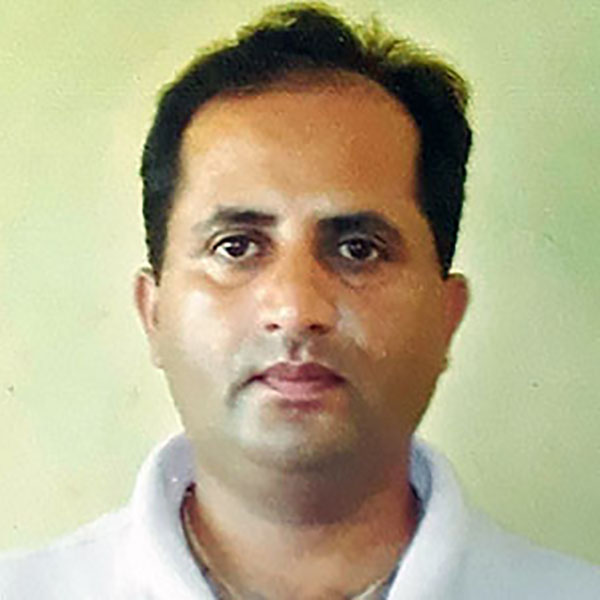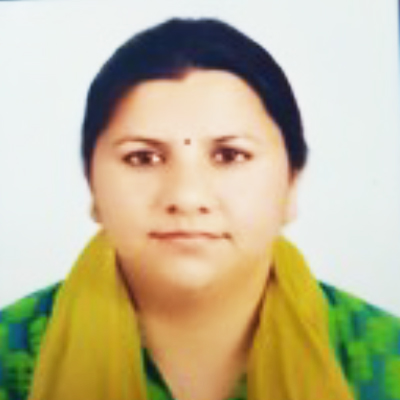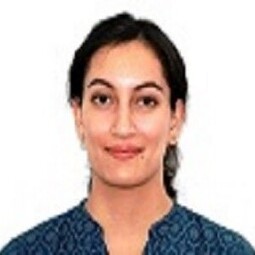The Department of Economics is offering BA with Economics under the Choice Based Credit System (CBCS). The degree programme offered by the department of economics consists of Discipline Specific Core and Elective Courses, Skill Enhancement Courses and Generic Elective Courses. Apart from this department also provide opportunities to the students to apply their theoretical knowledge to contemporary economic world by involving them in seminars, workshops, field trips and conferences. Students are also encouraged to contribute their critical, analytical and creative ideas, research and other related issues through the ‘Planning Forum’ Section of the college magazine. The department also have a functional subject society namely “Economic Society” with subject teacher as its president and a student from Final Year as its vice-president.
Detail of Programmes / Students Strength
| B.A. ( Economics ) | |
|---|---|
| 1st Year | 42 |
| 2nd Year | 40 |
| 3rd Year | 44 |
Eligibility
| Programme/Course/Level | Duration | Eligibility | Admission Procedure |
|---|---|---|---|
|
B.A. /UG
|
3 years
|
10+2
|
On merit basis
|
Present Faculty

Dr.Vikrant Thakur
Assistant Professor
Sandhya Kumari
Assistant Professor
Nivedita Chauhan
Assistant Professor| Name | Designation | Teaching Experience | Contact Number | E-mail ID |
|---|---|---|---|---|
|
Dr. Vikrant Thakur
|
Assistant Professor
|
13 Years
|
+91 98162 74624
|
thakur08vikrant@gmail.com
|
|
Sandhya Kumari
|
Assistant Professor
|
10 Years
|
-
|
sandhya.ch19@gmail.com
|
|
Nivedita Chauhan
|
Assistant Professor
|
1 Year
|
-
|
niveditachauhan21@gmail.com
|
Courses Offered in the Department
| DISCIPLINE SPECIFIC CORE (DSC) COURSES | ||
|---|---|---|
| Year | Discipline Specific Courses (DSC) | Course Code |
|
I
|
|
|
|
I
|
|
|
|
II
|
|
|
|
II
|
|
|
| DISCIPLINE SPECIFIC ELECTIVE (DSE) COURSES | ||
| Year | Discipline Specific Elective (DSE) | Course Code |
|
III
|
DSE – GROUP I (One out of the Following)
|
|
|
III
|
DSE 1: Indian Economy
|
ECONA301
|
|
III
|
DSE 2: Economic History of India 1857 – 1947
|
ECONA302
|
|
III
|
DSE 3: Economy of Himachal Pradesh
|
ECONA303
|
|
III
|
DSE 4: Basic Econometrics
|
ECONA304
|
|
III
|
DSE – GROUP II (One out of the Following)
|
|
|
III
|
DSE 5: Development Economics
|
ECONA305
|
|
III
|
DSE 6: International Economics
|
ECONA306
|
|
III
|
DSE 7: Mathematical Economics
|
ECONA307
|
|
III
|
DSE 8: Economic Systems
|
ECONA308
|
| SKILL ENHANCEMENT COURSES (SEC) | ||
| Year | Skill Enhancement Course (SEC) | Course Code |
|
II
|
SEC – I (One out of the Following)
|
|
|
II
|
SEC 1: Statistical Methods – I
|
ECONA203
|
|
II
|
SEC 2: Economics of Rural Development
|
ECONA204
|
|
II
|
SEC – II (One out of the Following)
|
|
|
II
|
SEC 3: Statistical Methods – II
|
ECONA205
|
|
II
|
SEC 4: Demography
|
ECONA206
|
|
III
|
SEC – III (One out of the Following)
|
|
|
III
|
SEC 5: Research Methodology
|
ECONA309
|
|
III
|
SEC 6: Public Finance
|
ECONA310
|
|
III
|
SEC – IV (One out of the Following)
|
|
|
III
|
SEC 7: Money & Banking
|
ECONA311
|
|
III
|
SEC 8: Project Work
|
ECONA312
|
| GENERIC ELECTIVE COURSES (GEC) | ||
| Year | Generic Elective Course (GEC) | Course Code |
|
III
|
GEC – I
|
|
|
III
|
GEC 1: Economy of Himachal Pradesh
|
ECONA313
|
|
III
|
GEC – II ( One out of the following)
|
|
|
III
|
GEC 2: Indian Economy
|
ECONA314
|
|
III
|
GEC 4: Development Economics
|
ECONA315
|
|
III
|
GEC 5: Environmental Economics
|
ECONA316
|
Specific Course Outcome of courses offered by the Department of Economics are:
| Name of the Course | Course Outcome |
|---|---|
|
Principles of Microeconomics
|
This course is designed to expose the student to the basic principles in Microeconomic Theory and illustrate the same with applications.
|
|
Principles of Macroeconomics
|
This course introduces students to the basic concepts in Macroeconomics. Macroeconomics and deals with the aggregate economy. In this course the students are introduced to the definition, measurement of the macroeconomic variables such as GDP, consumption, savings, investment and balance of payments. The course also discusses various theories of determining GDP in the short run. It also introduces the student to concept of inflation, its relationship with unemployment and some basic concepts in an open economy.
|
|
Indian Economy
|
This course is designed to enable students to have in-depth knowledge of various problems and issues faced by Indian Economy. The course will concentrate on both the achievements and the issues of the economy.
|
|
Economic History of India 1857 – 1947
|
This course analyses key aspects of Indian economic development during the second half of British colonial rule. This course links directly to the course on India„s economic development after independence in 1947.
|
|
Economy of Himachal Pradesh
|
This course highlights the basic features, characteristics and developmental issues of the Himachal Pradesh economy.
|
|
Basic Econometrics
|
This course provides a comprehensive introduction to basic econometric concepts and techniques. It covers statistical concepts of hypothesis testing, estimation and diagnostic testing of simple and multiple regression models.
|
|
Development Economics
|
This course reviews major trends in aggregate economic indicators in India and places these against the backdrop of major policy debates in India in the post- Independence period.
|
|
International Economics
|
This course develops a systematic exposition of models that try to explain the composition, direction, and consequences of international trade, and the determinants and effects of trade policy. The basic aim of this course is to link international trade relations and its impact on exports of nations.
|
|
Mathematical Economics
|
The main objective of this paper is to train the students to use the techniques of mathematical and statistical analysis, which are commonly applied to understand and analyze economic problems. The emphasis of this paper is on understanding economic concepts with the help of mathematical methods rather than learning mathematics itself. Hence in this paper a student will be initiated into various economic concepts, which are amenable to mathematical treatment.
|
|
Economic Systems
|
This course seeks to enrich the knowledge of the students regarding working of various economic systems. The course does not require any prior knowledge of economics.
|
|
Statistical Methods
|
This course introduces the student to collection and presentation of data. It also discusses how data can be summarized and analysed for drawing statistical inferences. The students will be introduced to important data sources that are available and will also be trained in the use of free statistical software to analyse data.
|
|
Economics of Rural Development
|
This course is designed to instill in the student a deeper understanding of rural development and issues therein. The student is expected to also achieve an appreciation of institutional efforts aimed at achieving rural development.
|
|
Demography
|
The main objective of this paper is to make the students aware of the importance of population in economic development and the various theories that explain the growth of population in a country. The study of Quantitative and Qualitative composition of population is also required to understand the dynamics of population growth.
|
|
Research Methodology
|
This course is designed to rigorously train the students in the concepts, methodology and reasoning involved in analyzing economic behavior of firms and markets, in general, in both static and partial equilibrium frameworks.
|
|
Public Finance
|
This course is a non-technical overview of government finances with special reference to India. The course does not require any prior knowledge of economics. It will look into the efficiency and equity aspects of taxation of the centre, states and the local governments and the issues of fiscal federalism and decentralization in India. The course will be useful for students aiming towards careers in the government sector, policy analysis and business.
|
|
Money and Banking
|
This course exposes students to the theory and functioning of the monetary and financial sectors of the economy. It highlights the organization, structure and role of financial markets and institutions. It also discusses interest rates, monetary management and instruments of monetary control. Financial and banking sector reforms and monetary policy with special reference to India are also covered. The course does not require any prior knowledge of economics. .
|
|
Project Work
|
Project Work is one of the culmination point of the learning process, which will put to test the acquired ability of the candidate to independently take the charge of the project and use the understanding of economics developed in previous years to evaluate/analyze economic issues.
|
|
Environmental Economics
|
This course focuses on economic causes of environmental problems. In particular, economic principles are applied to environmental questions and their management through various economic institutions, economic incentives and other instruments and policies. The course does not require any prior knowledge of economics. The course will be useful for students aiming towards careers in the government sector, NGOs, policy analysis, business and journalism.
|
